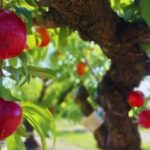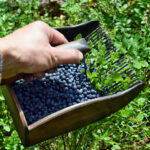Citrus black spot is spreading and causing damage in all citrus-growing areas of Tunisia

In 2019, after detecting the presence of Citrus Black Spot (CBS or Phyllosticta citricarpa) in up to seven imported consignments of Tunisian citrus in European ports within just two months, Tunisian authorities confirmed the presence of the disease for the first time in the north-east of the country, in the governorate of Nabeul.
An area of 2,000 hectares was officially declared infected. This discovery has disproved decades of claims by South Africa that the CBS is unable to adapt to the temperature and rainfall conditions that are found in Spain.
Less than five years after its initial detection, the disease has now fully spread to the citrus-growing areas of Tunisia, extending beyond Nabeul to Sousse, warns a recent scientific article published in the Journal of Phytopathology titled 'Geographical distribution, prevalence, and incidence of citrus black spot caused by Phyllosticta citricarpa in Tunisia'.
These findings coincide with the South African government's call to the European Commission (EC) for consultations at the World Trade Organization (WTO), to challenge the European Union regulations that prevent the import of fungal-infected citrus from countries such as South Africa.
According to Inmaculada Sanfeliu, President of the Citrus Management Committee (CGC), this new study "demonstrates the need to maintain and even strengthen these control measures, based on fungicide treatments and inspections in origin, as well as the lack of scientific credibility of the South African exporters and authorities".
The article published in March reports on a fully transparent investigation, with surveys and quantification of damage, promoted by Tunisian authorities. This study confirms that the detection of the disease was not anecdotical; it assesses the severity of the problem and its consequences, as well as the phytosanitary and economic risks posed by its potential spread to EU citrus-growing areas.
The findings are in line with the European Food Safety Authority (EFSA) scientific opinions, which were first presented in 2008, 2014, and reviewed again in 2018. These the criteria for the current European regulations—challenged again at the WTO, as in 2014—which apply not only to South Africa but also to other citrus-exporting countries like Argentina, Uruguay, Brazil, and Zimbabwe, all of which are affected by this disease.
Additionally, a recent study by the Valencian Institute of Agricultural Research (IVIA) has confirmed, using mathematical models of potential infections, the climatic suitability of the Mediterranean basin for the development of CBS.
This recent article, consistent with the findings from other affected regions worldwide, confirms that there is no known successful case of eradicating Citrus Black Spot once it has been introduced. In all affected countries, between four and six fungicide treatments per year are necessary to control the disease acceptably.
This level of treatment would be nearly impossible in the EU, given current phytosanitary restrictions and additional requirements from the 'Farm to Fork Strategy.' The Tunisian study highlights that when fungicides are not applied, damage can reach almost 100% of the orchard.
The increasing number of interceptions at European ports over the last three years—48 in 2023, 32 in 2022, and 43 in 2021, as confirmed by the EC—suggests that the issue “is not with the regulations themselves but with their recurring non-compliance”.
Inmaculada Sanfeliu argues that “South Africa's only intention with its WTO action is to avoid further European demands for the use of more effective and expensive fungicides, to avoid shipments to the EU being made only from CBS-free areas as required by the US, or even to delay a possible decision on an automatic closure when the problems recur next season”.
The seriousness of the impact of CBS is underscored in a letter from the European Commission (EC) sent in response to the WTO's call for consultations to the South African authorities. In this letter, the EC highlights that, according to EFSA studies, the economic impact of CBS potentially establishing itself in EU citrus-growing areas could total approximately 1,182 million euros.
In this context, Inmaculada Sanfeliu raises pertinent questions: 'Will the World Citrus Organisation now address the risk to Mediterranean citrus production highlighted by this study? And what about the impact on Spanish lemon production, the only Spanish sector integrated in this organisation and a co-promoter along with South Africa?”.














































